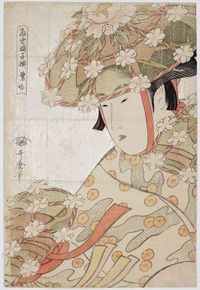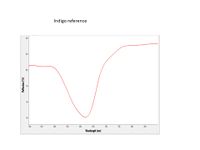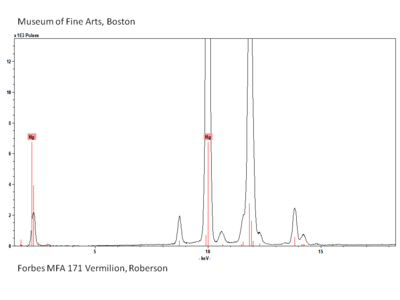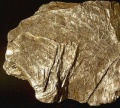Difference between revisions of "Category:Mica: Ukiyo-e colorant"
| Line 57: | Line 57: | ||
==List of Prints == | ==List of Prints == | ||
| − | + | Below is a list of prints where mica was detected. | |
Revision as of 00:21, 27 July 2020
Mica 雲母(kira or unmo): A group of silicate minerals that cleave into thin, flexible sheets. It is ground into a powder for use on ukiyo-e prints. Powdered mica can be printed or sprinkled to create a shimmering effect. Paste or animal glue (nikawa) would be used to affix the mica. It is a pearlescent white but can also be mixed with a colorant to make colored mica. Mica can appear in a variety of tones depending on its origin, preparation or if it is applied over a printed color. Pink, mica and a red colorant or dark gray, mica and carbon black are the most common tones.
Mica appears most frequently on prints made during the late 18th century that depicted actors and beautiful women where it was used on the background to highlight the figure.
For more information see: Mica
Examples of Mica in Ukiyo-e Prints
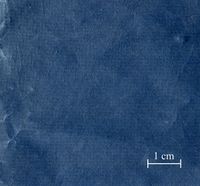
|

|

|

|

|
Analysis
X-ray fluorescence analysis (XRF) is used to detect mercury, which is an indication for the presence of vermilion (HgS).
Other Images of Mica
When we get back, add photo of heap of powdered mica
List of Prints
Below is a list of prints where mica was detected.
Pages in category "Mica: Ukiyo-e colorant"
The following 3 pages are in this category, out of 3 total.
